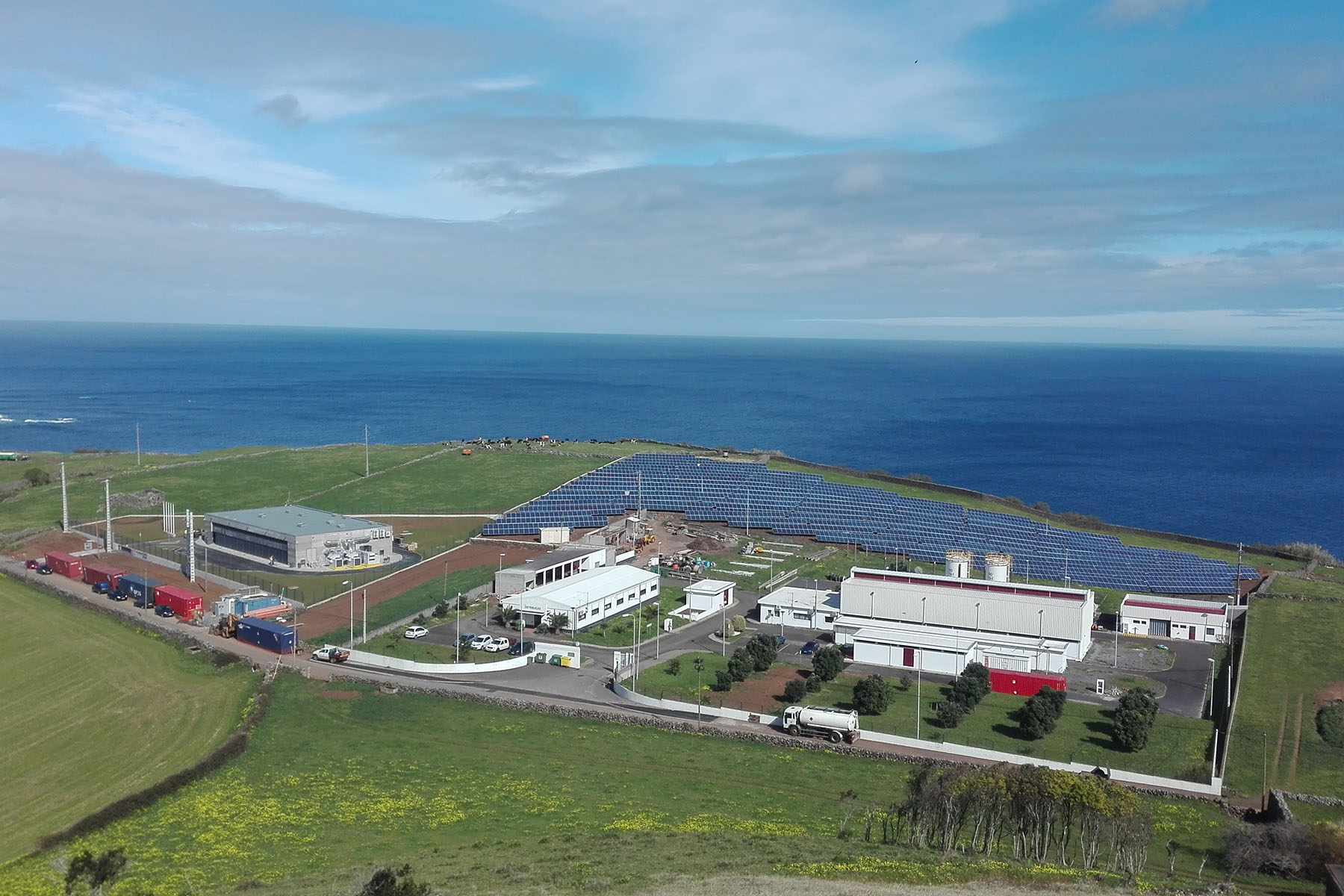Case study
Graciosa

The challenge
Graciosa is an island of 4,500 inhabitants in the Atlantic Ocean that is part of the Portuguese Azores, 1,600 km away from the Portuguese mainland. In the past, 100 % of Graciosa’s 13.6 GWh annual load was provided by diesel generators, requiring more than 3.3 million liters of diesel very year.
The solution
Leclanché installed a 7.4 MW / 3.2 MWh Lithium Titanite Oxide (LTO) battery energy storage system (BESS) for a microgrid featuring a 4.5 MW wind farm, a 1 MW solar PV plant and a diesel generator plant. The BESS compensates for the highly variable renewable energy production, provides voltage and frequency control, and has grid-forming capability if needed. Diesel generation is now used almost exclusively for backup power, decreasing overall diesel consumption by more than 65 % and resulting in annual fuel savings of € 1.9 million. Leclanché’s microgrid solution was provided on a turnkey basis and includes a 20-year lifetime performance warranty.
The rapid variations in electricity production from wind and solar PV require the BESS to be able to charge and discharge rapidly and achieve a high cycle count without experiencing too much degradation. LTO cell technology is uniquely capable in this regard, retaining 80 % of its nominal capacity after more than 20,000 cycles. Given the 20+ year power purchase agreement and the high cycle count required by this application, LTO is the only technology that both guarantees optimal performance and minimizes maintenance expenses over the lifetime of this key infrastructure asset.
Key figures
The Graciosa microgrid includes the following units:
- 4.6 MW Diesel Power Plant (3 x 600 kW, 1 x 810 kW, 2 x 1000 kW)
- 4.5 MW Wind Power Plant (5 x 900 kW)
- 1 MWp PV Power Plant
- 7.425 MW / 3.2 MWh Electrical Energy Storage System (EESS) based on Leclanché Lithium Titanate Oxide (LTO) technology
pictures credit: Graciólica
Other case studies
-
Leclanché Energy Storage Systems were selected to power the world’s largest electric ferry, the E-ferry. With a 4.3MWh capacity, the E-ferry sets a new benchmark in marine propulsion applications.
-
As more and more intermittent sources of renewable energy such as wind and solar are introduced to the grid, operators are finding it increasingly difficult to maintain the stability of the electrical system.